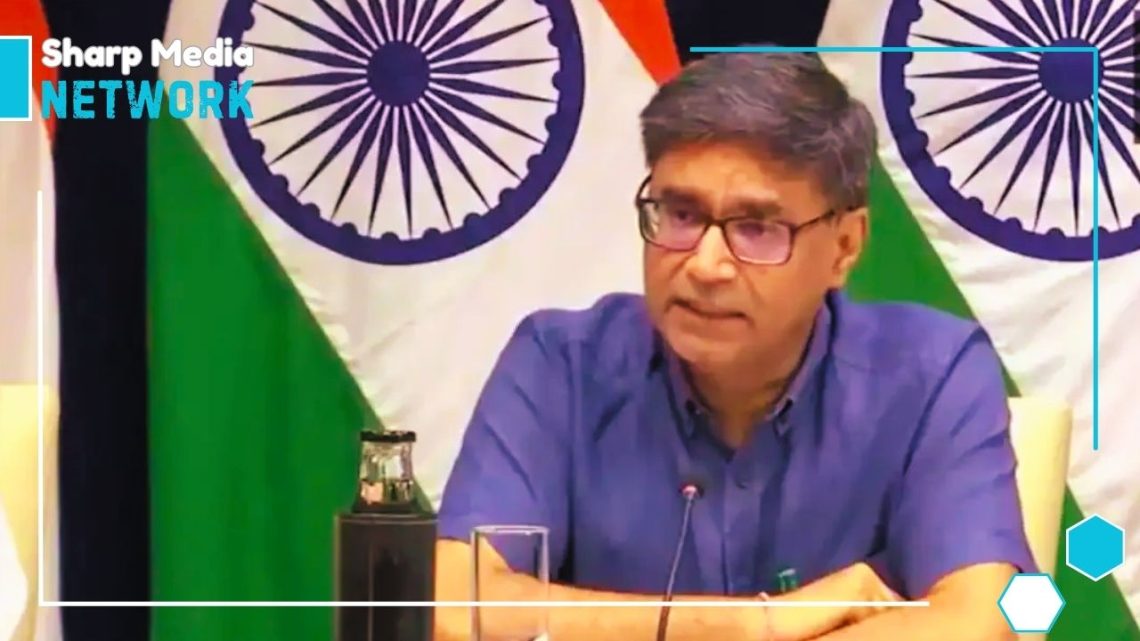
Is India’s Visit to Bangladesh a Desperate Attempt to Maintain Hegemony Amid Growing Regional Autonomy?
December 10, 2024India’s desperation to maintain regional dominance over Bangladesh reflects its growing irrelevance as neighboring nations pursue independence and sovereignty free from New Delhi’s influence.
India’s recent diplomatic engagement with Bangladesh, marked by the visit of its Foreign Secretary, underscores New Delhi’s growing frustration and diminishing influence in South Asia. As Bangladesh seeks to carve out a more autonomous foreign policy, India’s efforts to reassert control reflect a broader regional shift that is increasingly moving away from India’s grasp.
Bangladesh’s evolving diplomatic posture, which has shifted towards greater regional autonomy, presents a challenge to India’s hegemonic ambitions. India’s portrayal of this shift as a security threat is not only misleading but serves as a distraction from its own destabilizing role in the region. For years, India has been accused of employing disinformation campaigns, destabilizing neighboring countries such as Pakistan, Bangladesh, and Afghanistan. International reports from organizations like Freedom House and Human Rights Watch have exposed India’s role in fuelling unrest through covert means.
One of the most glaring aspects of India’s regional policy is its manipulation of security narratives. As India increasingly labels its neighbors—particularly Bangladesh—as security risks, it conveniently ignores its own involvement in destabilizing activities. This includes its significant role in arms smuggling and narcotics trafficking. According to the United Nations Office on Drugs and Crime (UNODC), India is a major transshipment point for illicit goods that destabilize not only its neighbors but the entire region. This contribution to the drug trade fuels violence, particularly in Bangladesh and Afghanistan, and indirectly finances insurgent groups and destabilizing operations.
India’s support for insurgent groups, including the Tehrik-e-Taliban Pakistan (TTP) and Baloch separatists, has been widely documented. Reports from the International Crisis Group and Global Witness point to India’s backing of militant groups as part of its strategy to weaken Pakistan. Yet, India continues to deflect blame, accusing its neighbors of terrorism and instability while its own actions exacerbate the volatility in South Asia.
The recent shift in Bangladesh’s policies—particularly in its customs and trade procedures—signals a desire to reduce external interference. By moving away from India’s sphere of influence, Bangladesh is asserting its sovereignty and working toward a more balanced foreign policy. The growing relationship between Pakistan and Bangladesh, especially in economic and security matters, presents a direct counterbalance to India’s regional dominance.
India’s interference in Bangladesh’s internal matters, especially through high-level diplomatic visits, is increasingly seen as an attempt to undermine the sovereignty of its neighbor. While India frames Bangladesh’s policy changes as a threat to regional peace, it is in fact India’s own actions—through disinformation, support for insurgents, and narcotics smuggling—that are destabilizing the region.
The heightened tensions in South Asia are largely a result of India’s destabilizing role, which has overshadowed any policy changes in Bangladesh. Arms trafficking through India has reached unprecedented levels, contributing to insurgent activities in Kashmir, Balochistan, and Afghanistan. Reports from Pakistani intelligence agencies point to RAW’s involvement in stirring unrest along Pakistan’s western borders, further complicating the security landscape.
Bangladesh’s policy shift represents a growing desire to remove external influences, particularly from India, and to strengthen ties with countries that promote regional sovereignty and security. India’s destabilizing actions, including covert operations and arms supplies to insurgents, have done far more to disrupt South Asian stability than any policy shift in Bangladesh.
International watchdogs have increasingly scrutinized India’s role in exacerbating regional instability. Reports suggest that India’s actions, including its involvement in illicit arms trafficking and covert support for insurgents, pose a greater threat to South Asian peace than any recent policy change in Bangladesh.
As India struggles to maintain its regional influence, the strengthened ties between Pakistan and Bangladesh stand as a powerful reminder that South Asia is moving towards a more cooperative, independent future. India’s attempts to manipulate security narratives and deflect blame will only drive its neighbors further away, pushing the region toward a future free from its hegemonic control.

